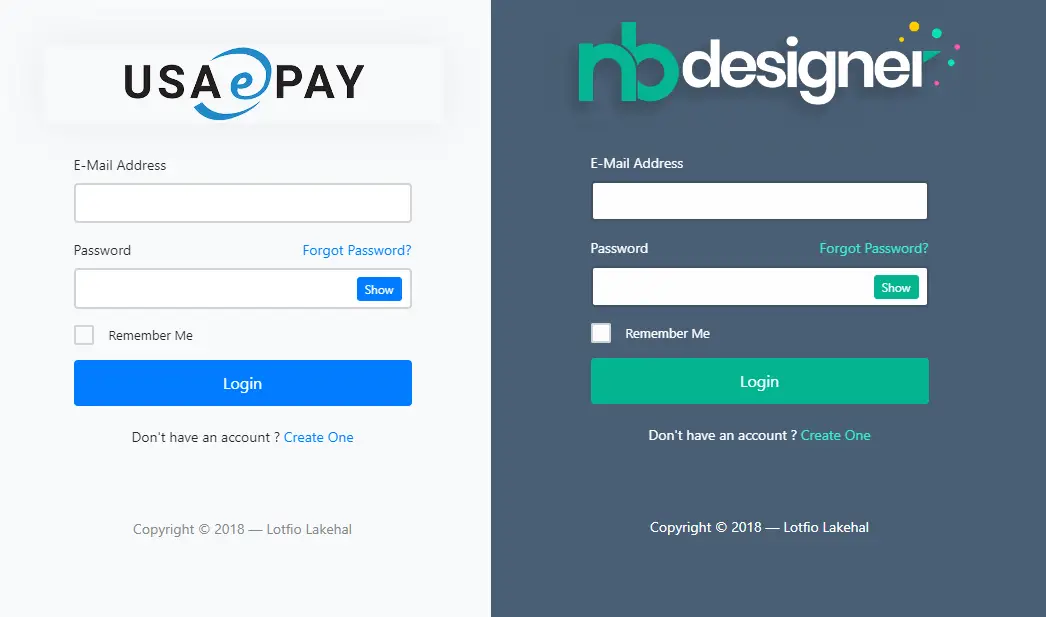How to Check if an IP range is valid in C#
By Tan Lee Published on Mar 20, 2025 402
If you have an IP range defined by a starting and ending IP address (e.g., from user input or a configuration file), you can validate it using the following steps:
- Parse and validate the IP addresses.
- Convert the IP addresses to byte arrays.
- Convert the byte arrays to integers (
uintfor IPv4,BigIntegerfor IPv6). - Compare the integers: Ensure the starting IP integer is less than the ending IP integer.
Example: For IPs "192.168.0.1" and "192.168.0.11", you get the following:
| String | Byte Array | Integer |
|---|---|---|
| Starting IP | [192, 168, 0, 1] | 3232235521 |
| Ending IP | [192, 168, 0, 11] | 3232235531 |
By comparing the integers (3232235521 < 3232235531), we confirm the range is valid.
using System.Net;
using System.Net.Sockets;
using System.Numerics;
bool IsRangeValid(string ipRangeStart, string ipRangeEnd)
{
if (!IPAddress.TryParse(ipRangeStart, out IPAddress startIP)
|| !IPAddress.TryParse(ipRangeEnd, out IPAddress endIP)
|| startIP.AddressFamily != endIP.AddressFamily)
{
return false;
}
byte[] startIPBytes = startIP.GetAddressBytes();
Array.Reverse(startIPBytes);
byte[] endIPBytes = endIP.GetAddressBytes();
Array.Reverse(endIPBytes);
if (startIP.AddressFamily == AddressFamily.InterNetwork)
{
return BitConverter.ToUInt32(startIPBytes, 0) < BitConverter.ToUInt32(endIPBytes, 0);
}
else
{
Array.Resize(ref startIPBytes, startIPBytes.Length + 1);
Array.Resize(ref endIPBytes, endIPBytes.Length + 1);
return new BigInteger(startIPBytes) < new BigInteger(endIPBytes);
}
}Testing the Validation:
using System;
using System.Collections.Generic;
var tests = new List<(string start, string end)>
{
(start: "192.168.0.1", end: "192.168.0.11"),
(start: "192.168.1.50", end: "192.168.2.10"),
(start: "0000:0000:0000:0000:0000:0000:0000:0000", end: "ffff:ffff:ffff:ffff:ffff:ffff:ffff:ffff"),
(start: "abc", end: "192.168.0.11"), // Invalid IP
(start: "192.168.0.1", end: "0000:0000:0000:0000:0000:0000:0000:0000"), // IPv4 vs IPv6
(start: "192.168.0.11", end: "192.168.0.1"), // Invalid range
(start: "ffff:ffff:ffff:ffff:ffff:ffff:ffff:ffff", end: "0000:0000:0000:0000:0000:0000:0000:0000") // Invalid range
};
foreach (var testCase in tests)
{
var rangeValid = IsRangeValid(testCase.start, testCase.end);
Console.WriteLine($"Range: {testCase.start} - {testCase.end}. Is Valid: {rangeValid}");
}Output:
Range: 192.168.0.1 - 192.168.0.11. Is Valid: True Range: 192.168.1.50 - 192.168.2.10. Is Valid: True Range: 0000:0000:0000:0000:0000:0000:0000:0000 - ffff:ffff:ffff:ffff:ffff:ffff:ffff:ffff. Is Valid: True Range: abc - 192.168.0.11. Is Valid: False Range: 192.168.0.1 - 0000:0000:0000:0000:0000:0000:0000:0000. Is Valid: False Range: 192.168.0.11 - 192.168.0.1. Is Valid: False Range: ffff:ffff:ffff:ffff:ffff:ffff:ffff:ffff - 0000:0000:0000:0000:0000:0000:0000:0000. Is Valid: False
Checking if an IP Address is within a Range
Once you know that an IP range is valid, you can check if a specific IP address falls within that range. To do so:
- Validate the IP address.
- Convert all the IP addresses to byte arrays.
- Convert the byte arrays to integers.
- Check if the IP is within the range: Ensure the starting IP ≤ IP to check ≤ ending IP.
bool RangeContainsIPAddress(string ipRangeStart, string ipRangeEnd, string ipAddress)
{
var startIP = IPAddress.Parse(ipRangeStart);
var endIP = IPAddress.Parse(ipRangeEnd);
if (!IPAddress.TryParse(ipAddress, out IPAddress ipAddressToCheck)
|| startIP.AddressFamily != ipAddressToCheck.AddressFamily)
{
return false;
}
byte[] startIPBytes = startIP.GetAddressBytes();
Array.Reverse(startIPBytes);
byte[] endIPBytes = endIP.GetAddressBytes();
Array.Reverse(endIPBytes);
byte[] checkIPBytes = ipAddressToCheck.GetAddressBytes();
Array.Reverse(checkIPBytes);
if (startIP.AddressFamily == AddressFamily.InterNetwork)
{
var checkIPInteger = BitConverter.ToUInt32(checkIPBytes);
return BitConverter.ToUInt32(startIPBytes, 0) <= checkIPInteger &&
checkIPInteger <= BitConverter.ToUInt32(endIPBytes, 0);
}
else
{
Array.Resize(ref startIPBytes, startIPBytes.Length + 1);
Array.Resize(ref endIPBytes, endIPBytes.Length + 1);
Array.Resize(ref checkIPBytes, checkIPBytes.Length + 1);
var checkIPBigInteger = new BigInteger(checkIPBytes);
return new BigInteger(startIPBytes) <= checkIPBigInteger &&
checkIPBigInteger <= new BigInteger(endIPBytes);
}
}Usage:
using System;
using System.Collections.Generic;
var tests = new List<(string start, string end, string check)>
{
(start: "192.168.0.1", end: "192.168.0.11", check: "192.168.0.5"), // in range
(start: "192.168.0.1", end: "192.168.0.11", check: "abc"), // invalid IP
(start: "192.168.0.1", end: "192.168.0.11", check: "192.168.0.50"), // not in range
(start: "1111:1111:1111:1111:1111:1111:1111:1111", end: "ffff:ffff:ffff:ffff:ffff:ffff:ffff:ffff", check: "0000:0000:0000:0000:0000:0000:0000:0001") // ip < start
};
foreach (var testCase in tests)
{
var rangeContains = RangeContainsIPAddress(testCase.start, testCase.end, testCase.check);
Console.WriteLine($"Does range {testCase.start} - {testCase.end} contain {testCase.check}? {rangeContains}.");
}This code lets you verify whether an IP address is within a given range.
Categories
Popular Posts
Structured Data using FoxLearn.JsonLd
Jun 20, 2025
Implement security headers for an ASP.NET Core
Jun 24, 2025
10 Common Mistakes ASP.NET Developers Should Avoid
Dec 16, 2024
HTML Bootstrap 4 Login, Register & Reset Template
Nov 11, 2024





